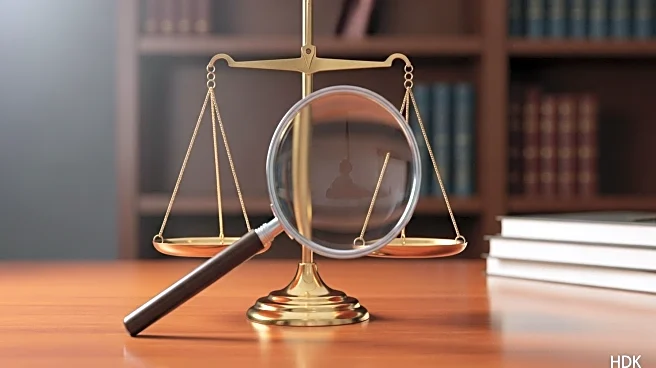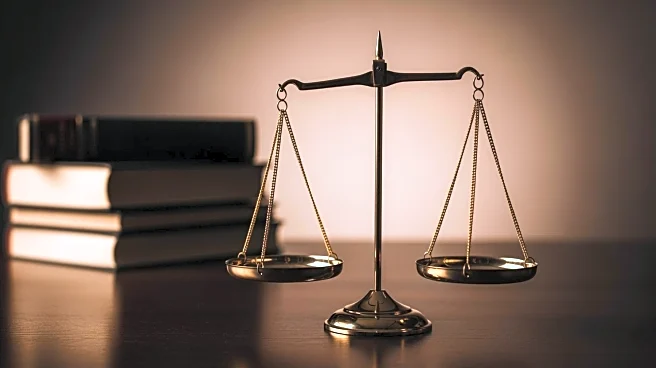What is the story about?
What's Happening?
The Department of Justice has launched a criminal investigation into Federal Reserve Governor Lisa Cook. The investigation follows allegations by Bill Pulte, Director of the Federal Housing Finance Agency, who accused Cook of falsifying bank documents and property records to secure favorable loan terms, potentially committing mortgage fraud. Subpoenas and grand juries have been issued in Georgia and Michigan as part of the investigation. President Trump has attempted to terminate Cook based on these allegations, a move that is being legally challenged. Cook denies any wrongdoing and has filed a lawsuit to contest her removal.
Why It's Important?
This investigation is significant as it highlights potential legal and ethical issues within the Federal Reserve, an institution critical to U.S. economic stability. The allegations against Cook could impact the credibility and functioning of the Federal Reserve, especially as President Trump seeks to reshape its balance. The case also underscores the politicization of legal processes, with Cook's attorneys accusing the Justice Department of acting under political pressure. The outcome of this investigation could have implications for governance and trust in federal institutions.
What's Next?
Cook's legal team is preparing to challenge her removal in court, arguing that President Trump lacks the authority to fire her based solely on a referral letter. The investigation is ongoing, with further developments expected as subpoenas are processed and evidence is reviewed. The Federal Reserve Chairman Jerome Powell has been urged to remove Cook, but her continued service and legal battle may influence the institution's operations and public perception.
Beyond the Headlines
The investigation into Lisa Cook raises broader questions about the intersection of politics and governance in federal institutions. It highlights the potential for legal actions to be influenced by political agendas, which could undermine public trust in the justice system. The case may also prompt discussions on the need for transparency and accountability in the appointment and oversight of federal officials.


















